Winter 2015 | Beyond Diversity: Are We There Yet?
A historical perspective on diversity in higher education reveals a fluid and expansive definition of the concept of diversity. The definition originated in a segregated educational, political and social/cultural system in which “diverse” encompassed a relatively simple racial distinction between blacks (or persons of color) and whites. As a result of cultural and social changes reflected in changing laws, policies, demographics, and social-cultural norms, the generally accepted definition today encompasses many more parameters, including religion, country of origin, disability, age and sexual preference (Goodman, Moses and Jones 2012).
The definition has also expanded to encompass a holistic view of how a campus should function: as an entity in which the promise of diversity goes beyond access to acknowledge the benefits of diversity for all who are involved in the collegial process, whether students, faculty or staff. The challenge of implementing a commitment to the value of diversity and inclusion is to tie it to other core values of the institution, and to make it real through policies and practices, programs, curriculum and the living environment. Of particular interest in this regard are interactions among various student groups that identify themselves in terms of ethnicity, race, cultural, national heritage and the like. How do members of these various student groups negotiate transracial, transethnic and transcultural interactions? Do they self-segregate on the UCR campus or participate in campus life across membership lines?
UCR sits in an enviable situation nationally, as attested to by a recent interview with its chancellor in the Chronicle of Higher Education and its number one ranking by Time magazine using the criteria announced by President Obama’s proposed college ratings scorecard, one that measures universities according to graduation rates, tuition costs and percentage of students receiving Pell Grants. Nevertheless, the university can do better. This seminar would examine UCR itself in an attempt to help understand the contours, challenges and opportunities of its unparalleled diversity. The seminar would ask what it means for faculty, staff and students to value diversity and what we all need to strengthen efforts to reach our diversity goals. Through examinations of its programs, student surveys, interviews, focus group discussions and the insights of undergraduate and graduate seminar participants, this seminar would explore the ways in which diversity has changed and continues to change UCR in an effort to help the institution create the research, teaching and living roadmap for the diverse universities to come.
Faculty Participants
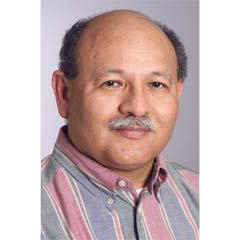 Adalberto Aguirre Jr., Professor of Sociology
Adalberto Aguirre Jr., Professor of Sociology
Professor Aguirre’s areas of expertise are critical race theory, diversity in higher education, immigration, Chicano-Latino Studies, economic/formal organizations and the sociology of education.
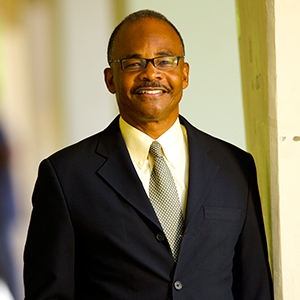 V. P. Franklin, Distinguished Professor of History & Graduate School of Education
V. P. Franklin, Distinguished Professor of History & Graduate School of Education
Professor Franklin is an expert in US education history, and particularly African-American education history. He is currently working on a study of transnational educational programs moving from the United States to Africa in the twentieth century.

Nick Mitchell, Assistant Professor of Ethnic Studies
Professor Mitchell’s research and teaching explore the social arrangements of knowledge, on the one hand, and the ways that knowledge and its institutional practices arrange social worlds, on the other. He is currently finishing a book entitled Disciplinary Matters: Black Studies, Women’s Studies, and the Neoliberal University.
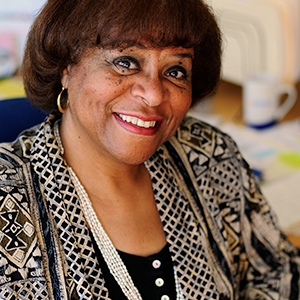
Yolanda T. Moses, Professor of Anthropology
Professor Moses’s research has focused on issues of diversity and change in universities and colleges in the United States, India, Europe and South Africa. She also examines the history of racial inequality in the US, race, class and gender theory as well as intersectionality theory. Professor Moses serves as the Associate Vice Chancellor for Diversity, Equity and Excellence at UCR.
Graduate Students
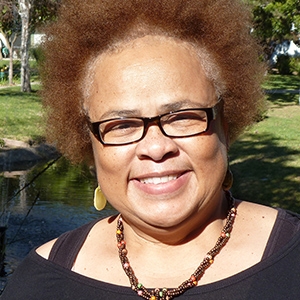
Linda Jean Hall, Anthropology
Linda Jean Hall is currently a doctoral candidate in Anthropology at UC Riverside actively involved in research, teaching and writing anthropological analyses about the Afro-Andean experience. Generally, images of Afro-Ecuadorians appeared in the media only on two occasions, to recognize exceptional performance as a footballer or in response to Afro citizen criminal behavior. After being informed in 2008 that Ecuadorians of African heritage comprise 5% of the population, Hall felt compelled to explore what is referred to as Afro-Ecuadorian invisibility.
Amy Perry, Sociology
Amy Perry is a graduate student in the sociology department at the University of California, Riverside. Her interests include “fake geek girls” and the geek subculture, representations in popular culture, immigration, and other gender- and race-related social issues.
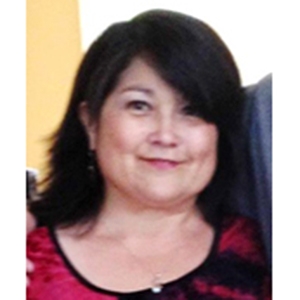
Isabelle Placentia, Anthropology
Isabelle Placentia is an applied anthropologist currently working in the geographic area of the Inland Empire within the state of California (Riverside and San Bernardino counties). Her research interests include the political economy of housing at the intersections of race, class and gender, the experience of foreclosure at the individual and community levels, and “how” the impacts of being unhoused are embodied and reflected in negative health outcomes. Read More
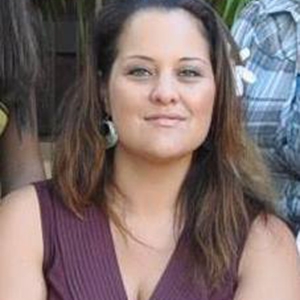 Kēhaulani Vaughn, Ethnic Studies
Kēhaulani Vaughn, Ethnic Studies
Kēhaulani Natsuko Vaughn is a visiting professor in Asian American Studies at Pitzer College. She is a current Doctoral Candidate in Ethnic Studies at the University of California at Riverside. Her educational background includes graduate degrees from UCLA in Education, Asian American and Indigenous Studies. Her current research explores Pacific Island Studies, Indigenous education, and decolonial practices and pedagogies. Read More
Undergraduate Students
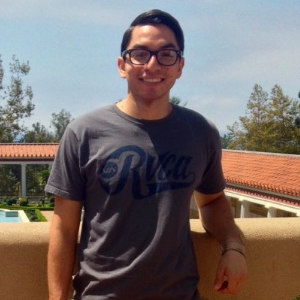
Matthew Carrera, Sociology & Chicano Studies
Matthew is currently an undergraduate student at UCR double majoring in Sociology and Chicano Studies. He is also a proud transfer student from California State University, Los Angeles. After graduation his plans are to pursue a PhD in Higher Education. His research interests include ways to increase the retention and graduation rates for Chicano and Latino students.
Sarah Doyle, Media & Cultural Studies
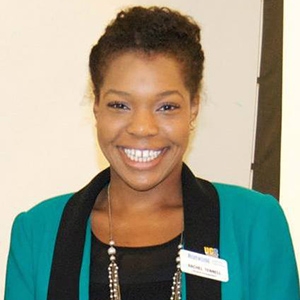
Rachel Tennell, African American Studies & Public Policy
Rachel Tennell is a graduating senior in the College of Humanities and Social Science, with a double major in Public Policy and African American Studies. She serves as the Chief Student Ambassador for the School of Public Policy where she represents the school at various events and as a student leader. She has received the “Top Ten Junior” and “Top Ten Senior” award, and continuous recognition for being on the Dean’s Honors List as well as the Chancellor’s Honors List for her whole academic career at UCR. She has interned for the County of Riverside’s Executive Office during her senior year, The Leadership Community for Women, and has recently joined the team of FICS America, which is currently working on a plan to solve the student debt crisis and educate policy makers, administrators, students, and politicians on this issue.
Anthony Victoria, History
Guest Lecturers
Guest lecturers coming soon
List of Topics covered each week
Week 1 – Group organizational business and distribution of topics for individual presentation
Week 2 – Multicultural Education: Existing Frameworks Exploring Diversified Campuses
Week 3 – Establishing Social Justice as a Core Democratic Value in Higher Education and Society
Week 4 – Pacific Islanders in Higher Education
Week 5 – Summa Cum Laude Diversity: The Multiplicity and Potentiality of Others as Students and Teachers
Week 6 – Understanding Diverse Standpoints: Student Activism and Diversity
Week 7 – Critical Theoretical Approach of Narrative Analyses – Exploring Ethnographical Approaches
Approaching Institutional Change: Structural/Compositional Diversity at UCR
Living the Promise at UCR- Neoliberal Practices and Public Discourses
Week 10 – Project Planning: Discussion of Deadlines, Internet and Future Session Obligations
Seminar Papers
Matthew Carrera
Paper: An Examination of University of California, Riverside’s ‘Success’ of Diversity and their ‘Commitment’ to Chicano and Latino Students as a Hispanic Serving Institution
Sarah Doyle
Paper: “Living the Promise” at UCR, Institutional discourse within the media, the university, and public: The praxis of erasure within the intersectionality of identity
V.P. Franklin
Paper: Student Activism, Diversity, and Self-Determination in U.S. Higher Education, 1960-1975
Linda Jean Hall
Paper: Lived-Experience and the Creation of Opaque Realities: Non-dichronic Methodologies
and the Analysis of Diversity and Discourse
Yolanda Moses
Abstract: Defining Diversity in Higher Education-Abstract
Paper: Defining Diversity in Higher Education
Amy Perry
Paper: The Diversity That Was Promised: A Song of Culture and Difference
Isabelle Marie Placentia
Abstract: “You Don’t Know Me”: Speaking From the Experience of Diversity at UCR as Student and Teacher via Auto-Ethnography
Rachel Tennell
Paper: Diversity and Student Debt
Kēhaulani Vaughn
Abstract: Beyond the Margins: Navigating Settler Colonialism in Successful Pacific Islander Indigenous Higher Education Retention Models